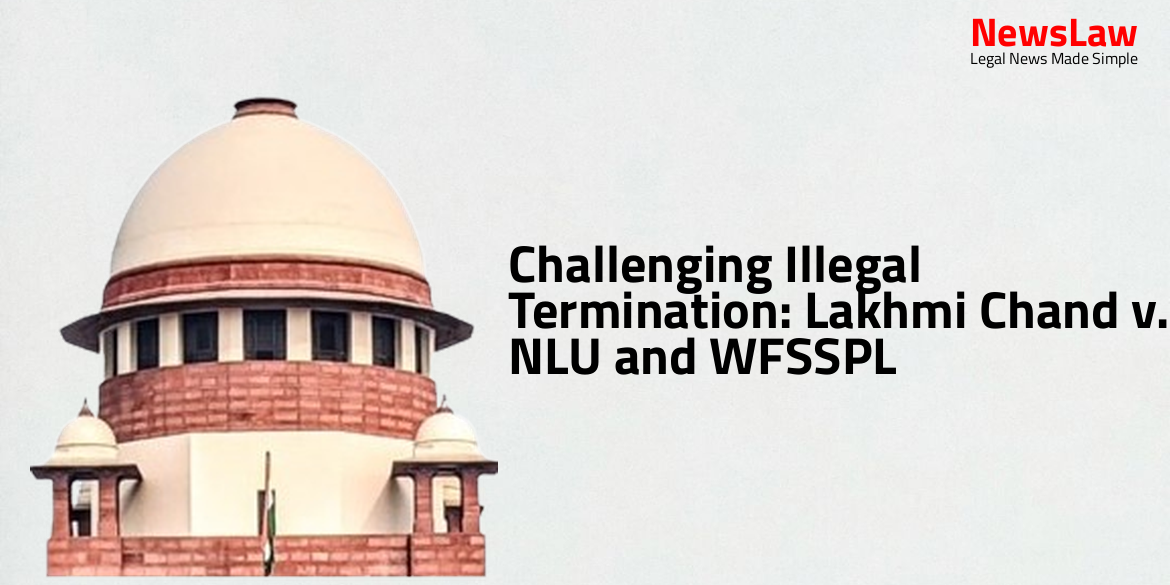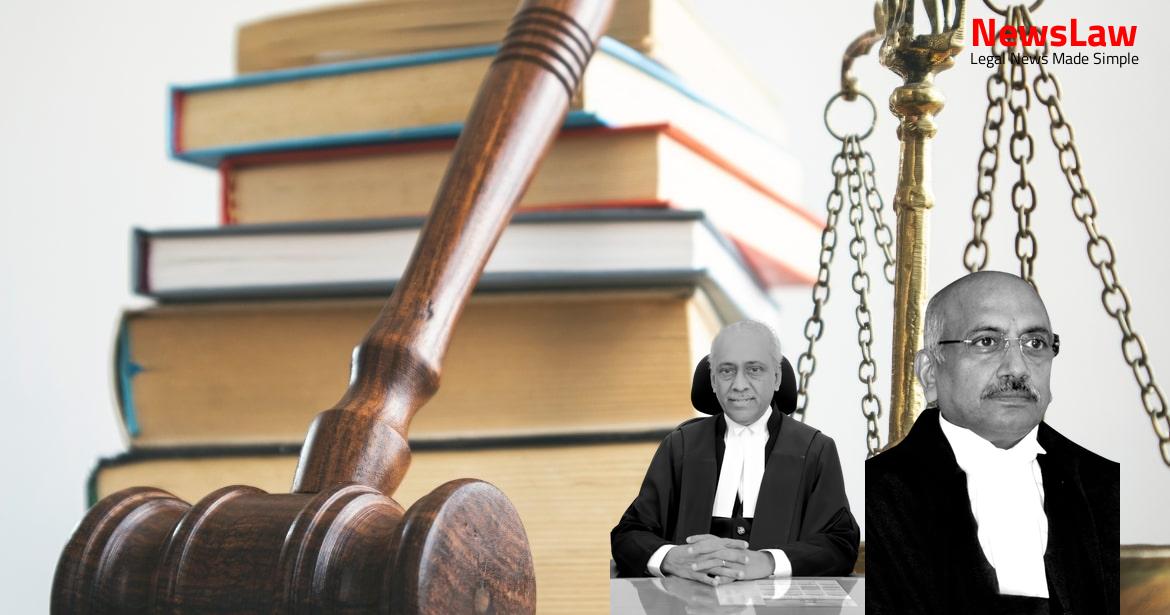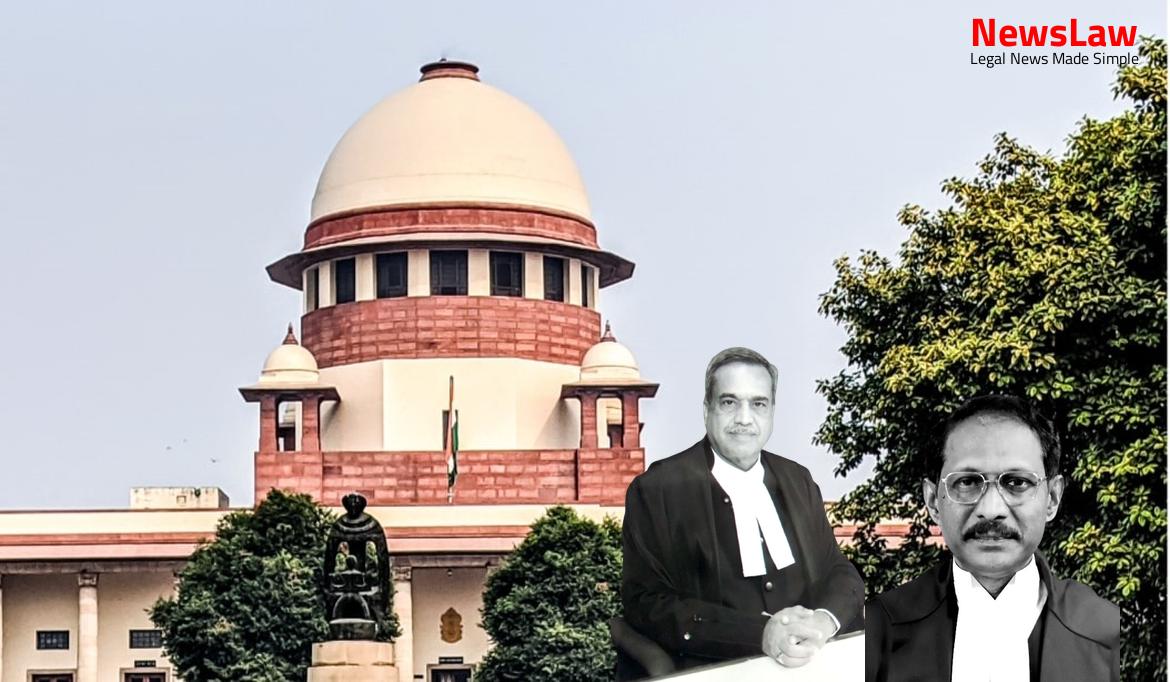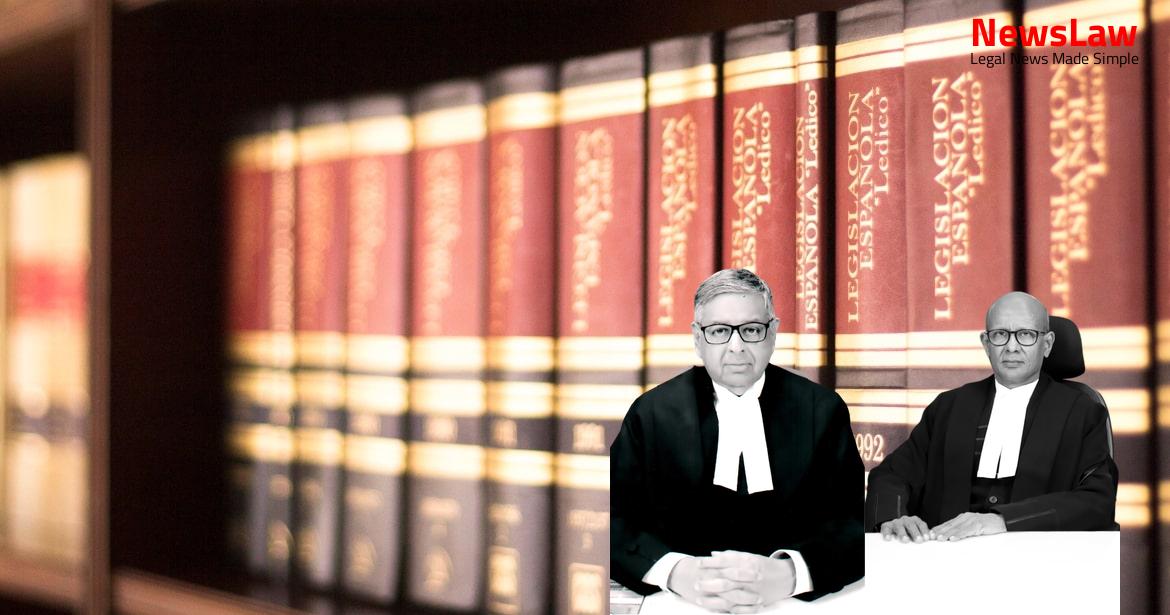In a significant legal dispute, the Delhi High Court addressed the issue of illegal termination in the case of Lakhmi Chand against National Law University, Delhi and M/s. White Fox Support Services Pvt. Ltd. The court’s ruling shed light on the complex dynamics between employer and employee, highlighting the challenges faced by workers in the modern workforce. Let’s delve deeper into the details of this case and explore the implications of the court’s decision.
Facts
- Lakhmi Chand sought reinstatement with full back-wages and continuity of service.
- Lakhmi Chand raised an industrial dispute against National Law University, Delhi (NLU) and M/s. White Fox Support Services Pvt. Ltd (WFSSPL).
- NLU denied any employer-employee relationship with Lakhmi Chand, stating that he was employed by WFSSPL who supervised him.
- Lakhmi Chand claimed to have been employed by NLU through WFSSPL as a Security Guard since 2 May 2012 at a salary of ₹13,863/- per month.
- Lakhmi Chand alleged that his services were terminated illegally without notice on 10 October 2017.
- He also claimed that his wages were unpaid for the period 26 September 2017 to 9 October 2017.
- NLU was found to not have an employer-employee relationship with Lakhmi Chand.
- WFSSPL was identified as the employer of Lakhmi Chand.
- Despite the lack of direct relationship, the Labour Court held NLU and WFSSPL jointly responsible for the illegal termination of Lakhmi Chand’s services.
- The workman alleged his termination was due to demanding a labor law facility, but did not specify the nature of the facility.
- Management did not contest the workman’s claim of illegal termination.
Issue
- Issue 1 of the judgement was decided against Lakhmi Chand and in favor of NLU.
- The Court held that there was no employer-employee relationship between NLU and Lakhmi Chand.
- It was established that Lakhmi Chand was actually an employee of WFSSPL.
Arguments
- The challenge in the writ petition is that the termination of the workman is held illegal and unjustified.
- The Labour Court held in favor of the workman and against both NLU and WFSSPL.
- The workman is entitled to reinstatement with full back-wages and consequential benefits.
- NLU is challenging the award to the extent it holds NLU responsible for the termination of the workman.
- WFSSPL is challenging the finding of illegal termination by filing a counter-affidavit.
- WFSSPL claims that the workman voluntarily resigned following a settlement agreement.
- The argument is made that illegal termination does not always lead to full back wages.
- The finding of illegal termination against WFSSPL is considered unsustainable and deserves to be set aside.
- The limited scope of jurisdiction under Article 226 is emphasized while dealing with Labour Court awards.
- The finding that the workman was terminated illegally by NLU is to be set aside as there was no employer-employee relationship.
- WFSSPL is entitled to challenge the award against it and contest the liability for termination.
- Arguments are made that the workman cannot claim illegal termination by WFSSPL due to a settlement agreement.
- The workman’s proof of working as an employee at the place of work of management no. 1 is highlighted.
- The impugned award holding the workman illegally terminated by NLU is to be set aside.
- WFSSPL contends that the workman’s dispute should not have been initiated after the settlement agreement.
- The challenge in claiming illegal termination by both NLU and WFSSPL is highlighted.
- WFSSPL accused of using the proceedings to block the execution of the award.
- Reference is made to the settlement agreement between the workman and WFSSPL regarding settlement of dues.
- Objections raised in the counter-affidavit were not raised before the Labour Court.
- Counsel for Lakhmi Chand objects to submissions made by Mr. Dutt for the first time in this Court.
- It is suggested that objections could have been raised in execution proceedings if permissible by law.
- WFSSPL chose not to be represented before the Labour Court despite multiple opportunities.
Analysis
- The settlement agreement dated 9 October 2017 between Lakhmi Chand and WFSSPL was not on record before the Labour Court as WFSSPL did not file a written statement.
- The Labour Court’s finding that Lakhmi Chand was an employee of WFSSPL was based on uncontested material before it.
- Mr. Dutt’s argument that complete back wages should not be awarded was not valid since Lakhmi Chand claimed he was not gainfully employed after termination.
- WFSSPL did not challenge the impugned award independently but now seeks to do so based on the settlement agreement in the writ petition filed by NLU.
- The plea to challenge the award in the present writ petition, without challenging it independently, is not justified.
- WFSSPL did not file a written statement in response to Lakhmi Chand’s claim, and the defence was struck off by the Labour Court.
- The appeal to reverse the decree in favour of WFSSPL, raised in the counter-affidavit, would only benefit WFSSPL and not NLU.
- The Court did not allow the challenge to the award at the instance of WFSSPL in the present writ proceedings.
- Non-payment of salary to the workman from 26.09.2017 to 09.10.2017 was proven on record.
- WFSSPL did not contest the contention regarding non-payment of salary through a written statement.
- The defence of WFSSPL was struck off, and they were proceeded ex parte due to non-appearance of management no. 2.
- Mr. Dutt’s argument on the provision is refuted by para 17 of the Charan Singh decision.
- The Supreme Court in para 17 of Charan Singh refers to the earlier case of Delhi Electric Supply Undertaking v. Basanti Devi.
- The reliance placed by Mr. Dutt on the provision is thus not supported by the Supreme Court’s reasoning in Charan Singh.
- The provision mentioned in Rule ends of justice was explained in the case of Mahant Dhangir v. Madan Mohan.
- The appellate court has the discretion to decide on awarding full back wages to a workman in appropriate cases.
- The Supreme Court’s judgments in Bhuvnesh Kumar Dwivedi v. Hindalco Industries and Deepali Gundu Surwase v. Kranti Junior Adhyapak support the awarding of full back wages in certain cases.
- The interference of the High Court with the Labour Court’s decision on awarding full back wages was considered an error.
- WFSSPL cannot challenge the award of full back wages in favor of Lakhmi Chand.
- The impugned award holding NLU liable for illegal termination of Lakhmi Chand is quashed and set aside.
- The judgment does not interfere with the award against WFSSPL.
- The judgment only determines WFSSPL’s ability to challenge the award in the present proceedings.
Decision
- The amount deposited by NLU with the Registry of the Court will be returned to NLU along with any accrued interest.
- WFSSPL reserves the right to raise contentions in other legal proceedings, if available in law.
- The writ petition has been allowed with no costs imposed.
Case Title: NATIONAL LAW UNIVERSITY DELHI Vs. LAKHMI CHAND & ANR. (2024:DHC:3986)
Case Number: W.P.(C)-3535/2023



